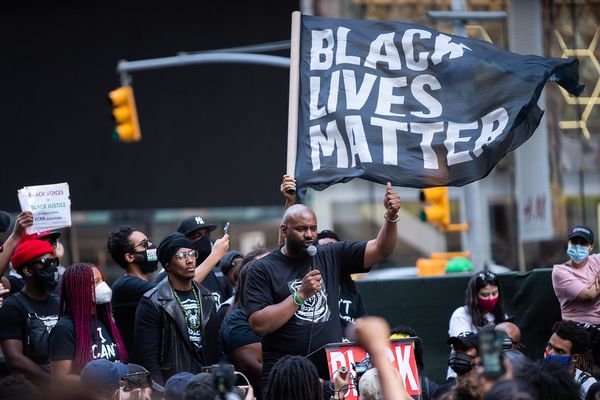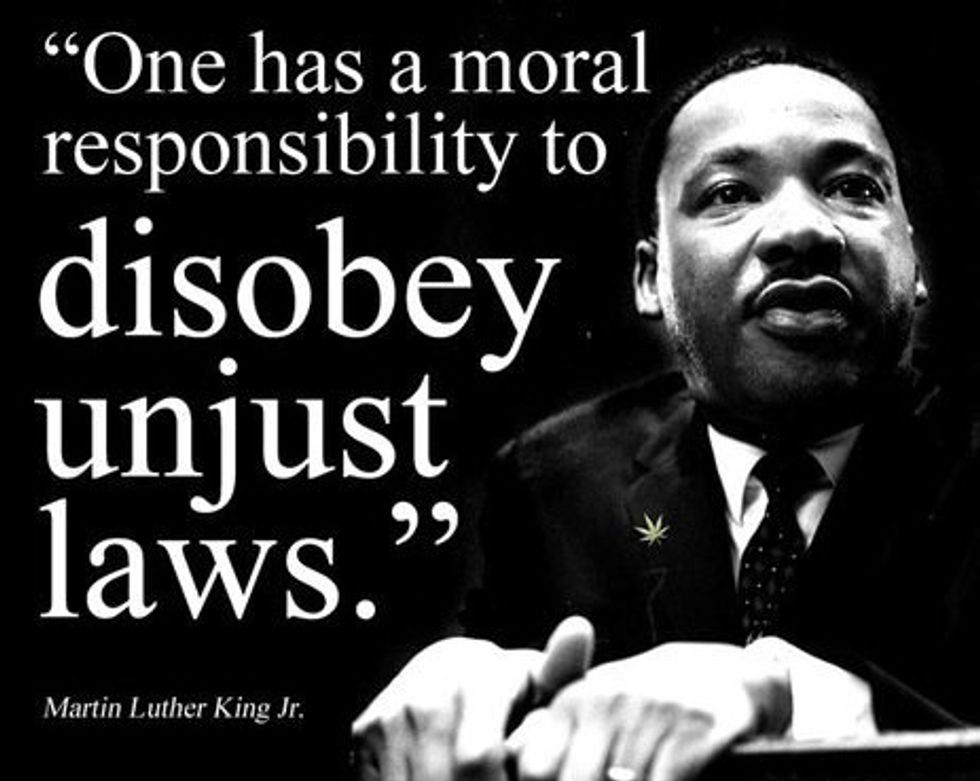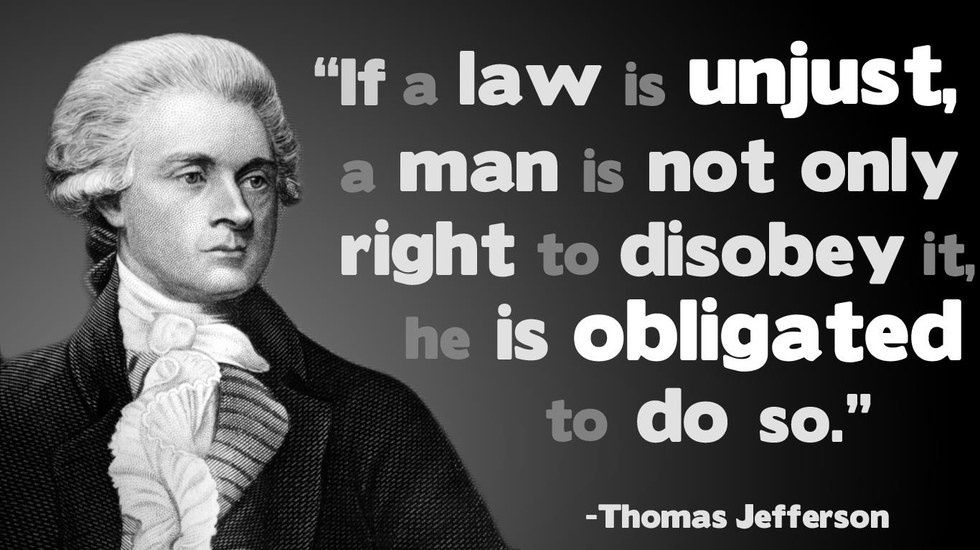“I became convinced that noncooperation with evil is as much a moral obligation as is cooperation with good.” -Martin Luther King Jr.
Often regarded as one of the greatest threats to a structured society, rebellion is typically thought of to have no discernible purpose, with only the intent to dismantle the peaceful means by which citizens are expected to live by. However, can we truly decide the moral values of an action without considering the full spectrum of possibilities that could have prompted such a response? One of the basic expectations we set for ourselves and those among us is the discipline to follow the rules that are set by those in authority; from the time we were mere infants, being taught to respect our parents to our adulthood years when we must force ourselves to give the same respect to our bosses, law enforcement, and even our political leaders, it is considered a fundamental responsibility for us to follow the rules. However, is this fundamental responsibility still justified when our parents, bosses, law enforcement, and political leaders set forth rules that are not only undesirable but genuinely harmful to us and others? Today, I ask you the question: does peaceful resistance to laws positively or negatively impact a free society? While there is, perhaps, no correct answer, I would like us to gain a better understanding of peaceful resistance by discussing the definition of civil disobedience, the philosophy of civil disobedience, and finally, whether or not civil disobedience helps or harms our society and its social and political progression.
Civil disobedience is defined by Merriam-Webster as the refusal to obey governmental demands or commands especially as a nonviolent and usually collective means of forcing concessions from the government. Unlike other forms of peaceful protest, which may include picketing or petitioning, the performer of civil disobedience may receive substantial punishment for their actions, including possible fining or imprisonment; regardless of one's intentions, breaking the law is seen, in the eyes of the law itself, as breaking the law.
Surely, when one faces such great risk, they must feel passionate about the issue at hand. Because of this, defining civil disobedience from a philosophical point of view is a simple task; there is very little moral debate about the intention of the committer. One who commits civil disobedience believes that the matter at hand is of such dire importance that they would be willing to sacrifice their freedoms in exchange for a chance to give freedoms to others. Likely the previous sentence conjures an image, whether historic or current, of a martyr. Yes, martyrdom, in all of its glory, often stems from civil disobedience, as both have roots in the same concept of revolution and sacrifice. Historically, when we look at some of our nation's greatest successes, such as the American Revolution and the Civil Rights Movement, we can see civil disobedience within the stitches of our own society.
Perhaps, if a few brave individuals did not dare to rebel, our society would not have progressed nor improved; many early-American revolutionaries were executed by the English parliament, and a multitude of those involved in the Civil Rights Movement, including Rosa Parks and the aforementioned Martin Luther King Jr., were imprisoned for their unlawful acts of defiance. While our government allows us to voice our opinions and to petition, often times, in order to make changes, we must take greater action. There are, of course, many strong criticisms to the concept of civil disobedience, many of which state that there is no such thing as justifiable unlawfulness. Many others question the "line" between civil disobedience and law-breaking. While these are, of course, completely logical criticisms, could we possibly consider George Washington or Rosa Parks to be malicious criminals because they technically committed crime in order to achieve fairness? Again, there is no correct answer. However, it is difficult to merely claim that "law is law", considering that laws are ultimately formed my imperfect people in a constantly-changing society; segregation may have seemed logical decades before the Civil Rights Movement but is no longer deemed appropriate. Laws must conform to what is considered proper and acceptable, and when they do not, they may be considered invalid.
Now that we've taken a look at the definition, philosophy, and moral values of civil disobedience, we now have a better understanding of its practical applications within our society. Laws are formed to benefit citizens, and when they fail to do so, action must be taken, whether it's by the majority of people, or by a single, daring individual.
























Does Our Justice System Really Not See Color?